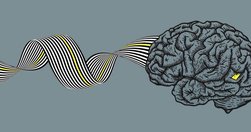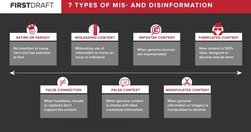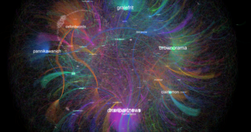
How fake news gets into our minds, and what you can do to resist it... to understand why it gets into our mind... by examining how memory works and how memories become distorted.... Fake news often relies on misattribution ... we retrieve things from memory but can’t remember their source... one of the reasons advertising is so effective... Repe…

it just felt like the conversations that we were having subsequently were actually pretty shallow and actually pretty useless, because we were talking over each other because everybody meant different things... we can only really start talking about interventions if we understand what we’re talking about... I say, “Please don’t use the term.” “Yea…

Clinicians should aim to understand parents’ values and engage in genuine, respectful conversations; these processes can help vaccine-hesitant parents feel heard and understood... Recognizing cognitive biases ... can also help ... omission bias may lead parents to blame themselves more if a child develops a vaccine-related side effect ... than ...…

A little bit of something bad helps you resist a full-blown case... Inoculating text requires two elements. First, it includes an explicit warning about the danger of being misled by misinformation. Second, you need to provide counterarguments explaining the flaws in that misinformation... explaining the misinformation technique completely neutra…

If reason is designed to generate sound judgments, then it’s hard to conceive of a more serious design flaw than confirmation bias... a trait that should have been selected against. ... it must have some adaptive function... related to our “hypersociability.” ... Living in small bands of hunter-gatherers, our ancestors were primarily concerned wit…

To some liberals, Donald Trump’s inauguration portends doom... to many conservatives, it’s a crowning moment ... as if each side is living in ... a different reality.... information avoidance... all of us ... ward off any new information that makes us feel bad, obligates us to do something we don’t want to do or challenges our worldview... we’re …

Anxious about... propaganda and fake news ... progressives are calling for an increased commitment to media literacy ... Others ... focus on expert fact-checking and labeling. ... fail to take into consideration the cultural context ... Understanding what sources to trust is a basic tenet of media literacy education... underlying assumption ... N…

... no one has direct access to reality. The real world is nearly impossible to see in this maelstrom ... because human minds need to “construct” their own version of reality — and each of us does this within a community of shared experiences and beliefs... there are many social worlds and each is built on its own version of what is real and true.…

The brain ... is an “inference generating organ.” ... predictive coding, according to which perceptions are driven by your own brain and corrected by input from the world... When “the sensory information ... does not match your prediction... you either change your prediction—or you change the sensory information that you receive.” We form our bel…